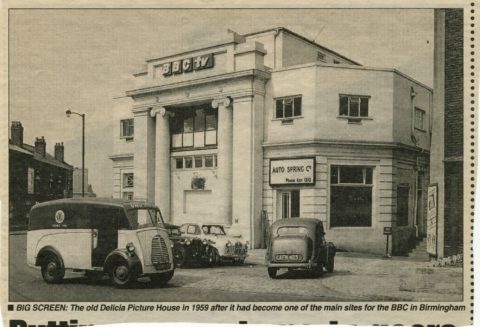It was announced last week that thousands of British television programmes are to be digitised in order to preserve them. The BFI is investing £13.5 million pounds worth of Lottery funding to carry out the project. Programmes from the 1970s and 1980s are said to be particularly at risk.
A number of Pebble Mill and pre-Pebble Mill dramas have been identified as part of the digitisation, these include, Second City Firsts (1973-8), and Rainbow City (1967). These are considered particularly significant because they include the early work of black and Asian writers.
The digitisation is being prioritised because of the shortage of early video equipment in sound working order, and the growing shortage of technical operators for such equipment.
It’s great to hear that some of the lesser known dramas to be made in Gosta Green and Pebble Mill are now being recognised as culturally important.

Errol John and Gemma Jones in Rainbow City. Copyright resides with the original holder, no reproduction without permission

